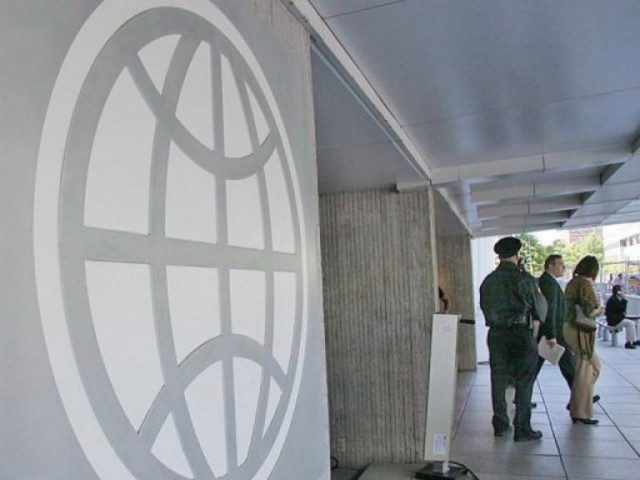Banks under threat: Govt may find it hard to repay debt, says WB
Lender says short-term borrowing exposes country to refinancing risks.

The WB is relatively optimistic about the government’s policy stance on the overall economy. PHOTO: FILE
While striking a note of optimism about growth prospects, the World Bank warned on Wednesday that Pakistan’s private banks may suffer at the hands of the government that could face difficulties in repaying the debt acquired for budget financing.
“The maturity of the government’s debt is short term that exposes it to refinancing risks,” said Markus Kitzmuller, an economist working with the WB.
He, along with Martin Rama, the WB’s chief economist for the South Asian region, was discussing the highlights of the WB’s report on the region through a video link from Washington.

Kitzmuller said in fact the government may actually have problems in repayments that could put banks’ balance sheets under stress. He suggested close monitoring of the banking sector’s balance sheets to avoid any harm to the economy.
The report, titled “South Asia Economic Focus: Time to Refocus”, disclosed that out of Pakistan’s total domestic debt, about Rs6 trillion or 64.2% was short term and maturing in the current fiscal year. “Hence, refinancing risk is quite elevated.”
The report warned that also around 67% of domestic debt was exposed to interest rate changes within one year, as opposed to only 22% of external debt.
It estimated that a one-percentage-point increase in domestic interest rates would increase interest payments by Rs63 billion, while the same change in interest rates on external debt would lead to only Rs8.4 billion additional payment.
However, Rama stressed that there was nothing in the report suggesting the government would default on its payments.
Growth forecast
Unlike the International Monetary Fund (IMF) and Asian Development Bank (ADB), the WB sounded optimistic about growth prospects in the current fiscal year.
According to the report, Pakistan’s economy may grow at a rate of 3.6% to 4% in the current fiscal year on the back of dynamic manufacturing and services sectors, better energy availability and early revival of investor confidence.
The IMF has projected a slowdown in growth and expects 3.1% economic expansion this year while the ADB has assessed 3.4% growth rate.
The WB said Pakistan was also expected to build further momentum to the projected growth of 4% in coming years.
Rama said the WB was relatively optimistic about the government’s policy stance on the overall economy. He, however, did not mention any reforms to support his argument.
But according to the report findings, Pakistan has started implementing crucial structural reforms in the energy sector (mainly targeting tariffs and subsidies as well as sector performance and accountability). Local analysts term these measures unsustainable as the root causes behind the swelling circular debt remain unaddressed.
Responding to a question about the credibility of data released by Pakistan’s statistics agencies, Rama said measuring gross domestic product (GDP) was not an easy task particularly when there was a large-sized informal economy. In such circumstances, margins of errors were always considerable, he said.
The WB said Pakistan continued its ongoing struggle on the capital and financial account, where foreign direct investment and portfolio investment flows remained at very low levels.
It added that the recent increase in foreign currency reserves had come from unexpected inflows received bilaterally under the umbrella of the Pakistan Development Fund and further easing was expected to come from the Coalition Support Fund (CSF), auction of 3G and 4G licences as well as Eurobond issuance.
The WB said Pakistan was on track to achieve this year’s budget deficit target of 5.8% of GDP with revenue collection on its way to recovery from a poor FY13 performance and recurrent expenditure projected to remain below last year’s level.
Published in The Express Tribune, April 10th, 2014.
Like Business on Facebook, follow @TribuneBiz on Twitter to stay informed and join in the conversation.


















COMMENTS
Comments are moderated and generally will be posted if they are on-topic and not abusive.
For more information, please see our Comments FAQ